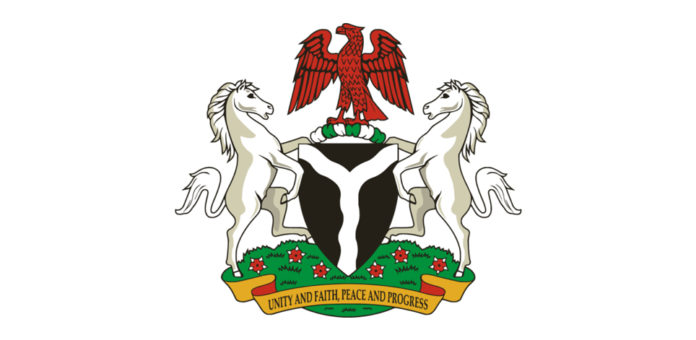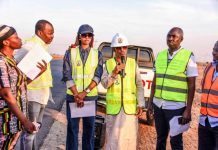With the outbreak of COVID-19 worldwide and subsequent lockdowns of the nation’s revenue projection of government, agencies and organizations were altered. Macro and micro economic indicators were upturned.
The Nigeria government recognizing the significance or the economic impacts of COVID-19, announced fiscal and stimulus measures to shore up the economy.
Federal Roads Maintenance Agency (FERMA), being in the construction and infrastructure sector was among the first to open up, and government budgeted funds for COVID-19 intervention projects.
FERMA immediately swung into action, targeting two hundred road contracts in the most advanced stages of deterioration where each State of the federation benefits at least four projects.
The Managing Director/CEO, Engr. Nuruddeen A. Rafindadi, FNSE, addressing the Press recently said the Agency has undertaken several projects with the COVID-19 intervention fund.
He said some of the intervention projects include the contract for the general maintenance of Jigawa State Border – Katagum – Gamawa road, contract for general maintenance of Bauchi – Kari – Yobe State border road and contract for general maintenance of Bauchi – Tafawa Balewa – Plateau State border road.
Rafindadi said the Jigawa State border – Katagum – Gamawa road in Bauchi State is a federal road of 53km length, with 7.3m wide asphaltic concrete carriageway and 2.75m surface dressed shoulder on both sides. The road he mentioned, has its origin from Gamawa and traverses Katagum in Zaki Local Government to Jigawa State border to Kano State. The road was characterized with cracks, depression, failures and potholes which the Agency focused on with the COVID-19 intervention fund. The work done were scarification, cutting and patching of potholes, provision of stone base and priming on failed sections and pavement strengthening with asphalt overlay.
The Bauchi – Kari – Yobe State border road is a 182km long road which fosters social-economic growth between the neighbouring States of the North Eastern part of the country. The scope of works done here included cutting of potholes, scarification of failed sections, milling, provision of stone base in potholes, provision of laterite as sub base, provision of priming in potholes and on shoulder, provision of asphaltic concrete wearing course as overlay and potholes and surface dressing of shoulder.
Other roads worked on are the Bauchi – Tafawa Balewa Plateau State Border road covering scarification, cutting and patching of potholes, reinstatement of shoulders, provision of stone base and priming on failed sections and pavement strengthening with provision of asphalt overlay; Bauchi –Ningi Jigawa State border road which traverses Kafin – Madaki and Ningi town to Jigawa and Kano State. General maintenance work done included cutting to shape potholes, provision of stone base and asphalt in potholes as well as construction of lined drain.
Still catching on the COVID-19 intervention fund, the Agency also intervened on the Ayetoro – Mopa – Isanlu – Jebba – Kwara south bound road in Kogi State which hitherto was characterized with deep large potholes and critically failed sections with exposed base and sub base layers at most locations.
Considering the deplorable condition and varied base materials, the Agency selected the road as a pilot project on the use of base-seal for road base stabilization. Road base stabilization is a technique whereby natural soil, gravel and low quality aggregate are adopted for use in the layer of road pavement. In Nigeria, the use of soil stabilization technique in highway construction and maintenance has gained popularity. Keeping up to date with the latest technology used in road maintenance, FERMA bas adopted the stabilization with base seal for its maintenance work in areas where the soil has high permeability.
The MD said, “In highway engineering, soils are used either as surface earth structure as in dams and embankments, subsurface foundation materials or combination with other materials in the presence of binder to produce cement and asphalt concrete. In most cases, the soil with the required engineering properties is not available near the site of proposed work. Sourcing it from far distant location involves large haulage distance and hence heavy transport cost. For economic reasons, therefore, the need to modify the local materials encountered at, or near the site of proposed work become necessary. Hence the advent of soil stabilization”
Maryam M. Sanusi (Mrs.)
Deputy Director (Information)






